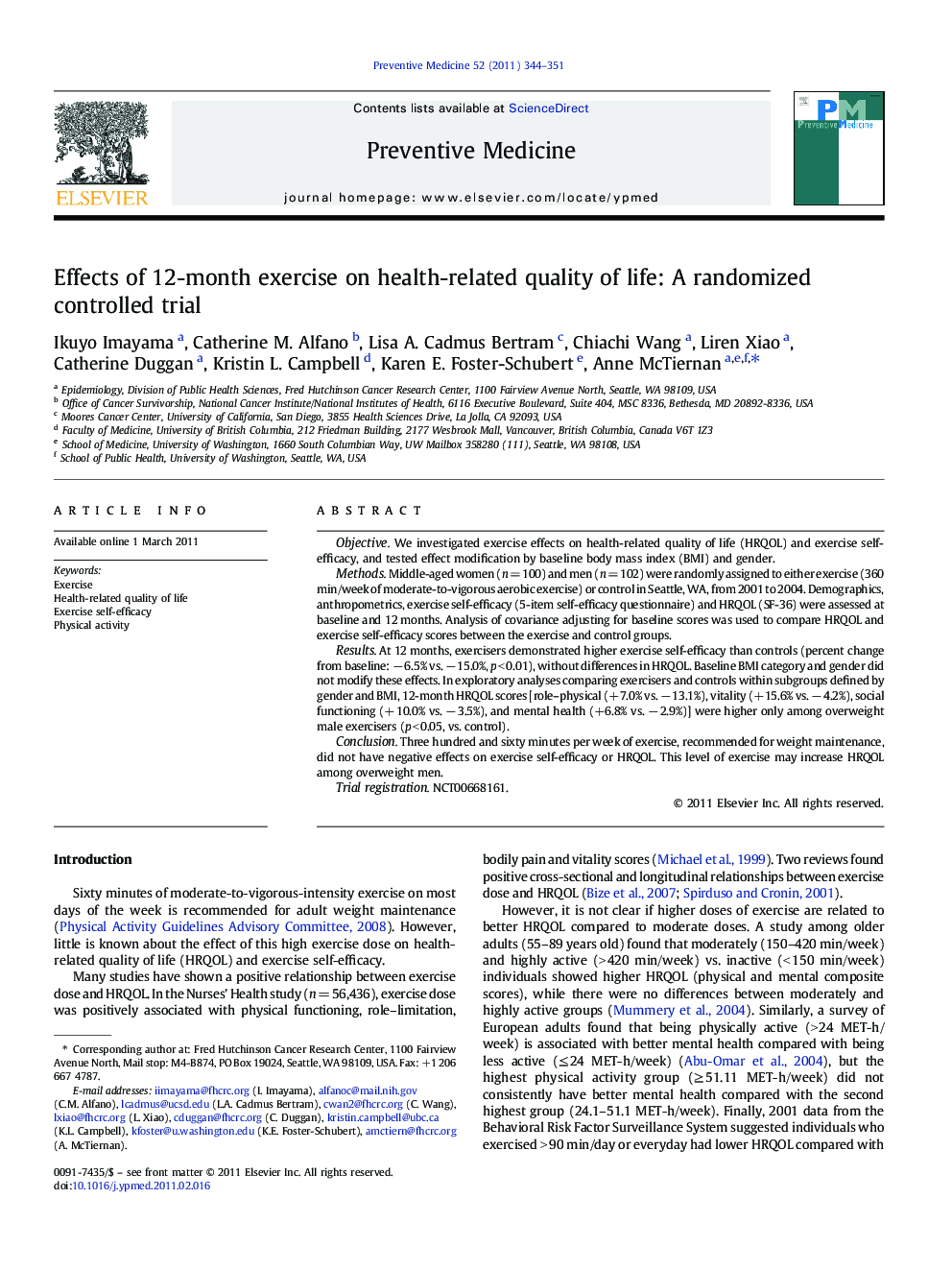| Article ID | Journal | Published Year | Pages | File Type |
|---|---|---|---|---|
| 6048467 | Preventive Medicine | 2011 | 8 Pages |
ObjectiveWe investigated exercise effects on health-related quality of life (HRQOL) and exercise self-efficacy, and tested effect modification by baseline body mass index (BMI) and gender.MethodsMiddle-aged women (n = 100) and men (n = 102) were randomly assigned to either exercise (360 min/week of moderate-to-vigorous aerobic exercise) or control in Seattle, WA, from 2001 to 2004. Demographics, anthropometrics, exercise self-efficacy (5-item self-efficacy questionnaire) and HRQOL (SF-36) were assessed at baseline and 12 months. Analysis of covariance adjusting for baseline scores was used to compare HRQOL and exercise self-efficacy scores between the exercise and control groups.ResultsAt 12 months, exercisers demonstrated higher exercise self-efficacy than controls (percent change from baseline: â 6.5% vs. â 15.0%, p < 0.01), without differences in HRQOL. Baseline BMI category and gender did not modify these effects. In exploratory analyses comparing exercisers and controls within subgroups defined by gender and BMI, 12-month HRQOL scores [role-physical (+7.0% vs. â 13.1%), vitality (+15.6% vs. â 4.2%), social functioning (+ 10.0% vs. â 3.5%), and mental health (+6.8% vs. â 2.9%)] were higher only among overweight male exercisers (p < 0.05, vs. control).ConclusionThree hundred and sixty minutes per week of exercise, recommended for weight maintenance, did not have negative effects on exercise self-efficacy or HRQOL. This level of exercise may increase HRQOL among overweight men.Trial registration. NCT00668161.
